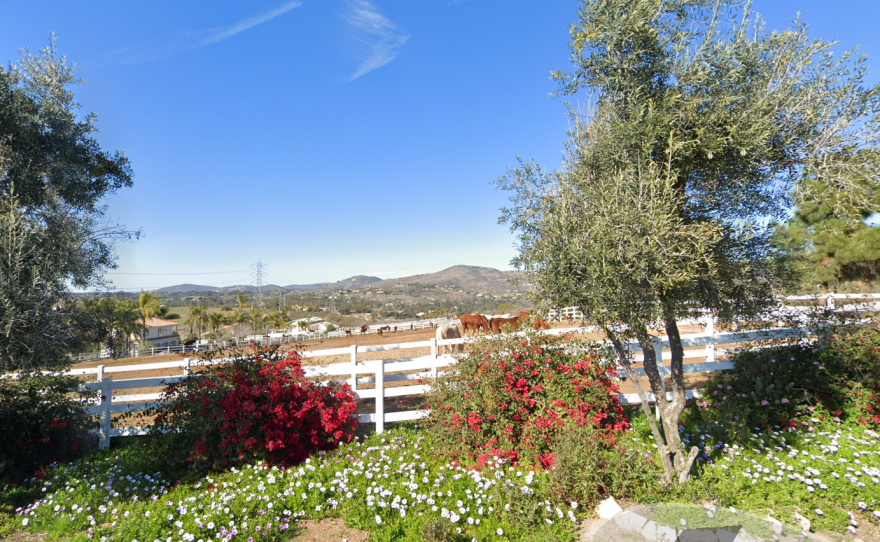The county's animal control department is working to resolve complaints of horse neglect at two properties in San Diego County, an official told City News Service on Thursday.
The first complaint dates from March and involves allegations of substandard care at a ranch near Rancho Santa Fe. The San Diego County Department of Animal Services was called to the property in the 7600 block of Artesian Road in response to a report of a horse in distress, according to the agency.
"Animal Services dispatched an officer to the scene and found one elderly horse down and trapped in mud," the department stated. "While the horse's owner and veterinarian were contacted and responded quickly to provide humane euthanasia, the animal in question had unfortunately expired before euthanasia could be provided.
"There are additional horses on the large property, and, currently, Animal Services' investigation is ongoing. The owner's private veterinarian has indicated that they are onsite at the property several days a week to attend to resident animals. Animal Services officers will conduct a thorough investigation to ensure the welfare of all animals on property. The Department of Animal Services is prepared to assist the property owner if needed."
Between 40 and 50 horses allegedly had been receiving substandard care at the ranch, according to various news reports.
Investigators from the animal services department met with the owners and their veterinarian several times.
On Thursday, Chuck Westerheide, communications officer for the county's public safety group, which includes the animal control department, said it appeared unlikely at this point that officials would be removing the animals.
"We're continuing to work with the owners to make sure we can get voluntary compliance with rules and regulations of animal ownership," Westerheide told CNS. "It's an ongoing process very similar to that with code compliance. We tell them what we think is going on, and we want to work with them to fix whatever needs fixing."
A woman from the rescue group Saving Horses Inc. told CBS8 last month that she saw horses without access to hay and eating manure. Audrey Reynolds, who has been rescuing horses for 16 years, said the fields where the horses stand look like manure has piled up for years.
The property owners could not be reached for comment. They were identified by CBS8 as Craig Netwig and Debra Barkely. The pair are listed as thoroughbred racehorse breeders and owners by the industry website Equibase.
Mike Marten, a spokesman for the California Horse Racing Board, told CNS that Netwig and Barkely are both licensed as horse owners by the CHRB.
"The horses in question are not located at a facility licensed by the CHRB," Marten said. "The CHRB will be leaving this investigation to the agencies with jurisdiction ... where the violations are alleged to have occurred. Once those agencies complete their investigations, the CHRB will determine whether the individual licensed owners have violated any CHRB rules and will proceed accordingly."
In the second case, multiple residents complained about seeing more than a dozen horses allegedly being neglected at a property on Kauana Loa Drive in Escondido.
One resident told CNS she saw about 14 or 15 horses in the front yard "knee deep in manure," with "3 feet of old, wet manure in the corrals."
"We're further along with them," Westerheide told CNS. "We gave that owner mandates and the owner is working to meet the mandates."
"A lot of this has to do with the (recent) rains," he added. "Horse owners on certain properties where there's a lot of mud are going to struggle to find a place where there is not mud. They might have to find another place for those animals.
"We don't want to take people's animals away, as much as some activists might like us to," Westerheide said. "We want the owner to get into compliance unless there's a life-threatening situation for the animals."







